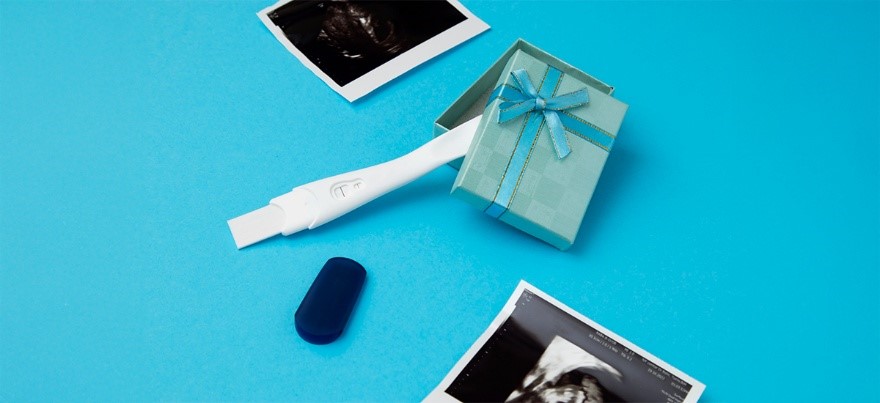Categories
Ovulation Induction: What Is It and How Does It Help Infertility?
Jul 09, 2025
For many couples trying to conceive, the path to parenthood can feel confusing, emotional, and uncertain. Among the many options available today, ovulation induction stands out as one of the most effective and least invasive treatments for women who face difficulty in ovulating regularly. It can be a vital first step towards achieving a healthy pregnancy, particularly when guided by the expertise of the best fertility hospital with state-of-the-art care and personalized treatment protocols.
Baseline Tests: These include blood work and pelvic ultrasound to assess the ovaries and uterus.
Monitoring: Regular ultrasounds and blood tests track the development of follicles and hormone levels. This helps determine the best time for ovulation.
Triggering Ovulation: When follicles are mature, a “trigger shot” (hCG injection) may be given to ensure timely egg release. This shot is a crucial part of the process as it helps to precisely time ovulation, increasing the chances of successful fertilization. Your doctor will carefully monitor your response to the medication to ensure safety and effectiveness.
Timed intercourse or IUI: Depending on the couple’s fertility profile, doctors will recommend either timed intercourse or intrauterine insemination during the fertile window. This is the period when a woman is most likely to conceive, usually around the time of ovulation. Your doctor will guide you on how to identify this window and ensure that intercourse or IUI is performed at the most opportune time.
Yes, when performed under expert supervision, ovulation induction is generally safe. However, like all medical treatments, it carries some risks. The most common include:
Multiple Pregnancy: There is a slightly higher chance of twins or triplets, especially with injectable medications.
Ovarian Hyperstimulation Syndrome (OHSS): A rare condition where the ovaries respond too strongly to the medication and become swollen and painful.
Emotional Stress: Regular monitoring, medication side effects, and the uncertainty of the outcome can be emotionally draining.
Always choose the best fertility hospital for better outcomes. Experienced fertility specialists, careful monitoring, and a personalized approach can help maximize success while minimizing risks.
For More Information and Appointments, Please Call:
Disclaimer:
The information provided in this blog is for general informational purposes only and should not be considered a substitute for professional medical advice, diagnosis, or treatment. Always seek the guidance of a qualified healthcare provider with any questions you may have regarding a medical condition, symptoms, or treatment options. Never disregard professional medical advice or delay seeking it because of something you have read here.
Understanding Ovulation and Why It Matters?
Ovulation is a natural process in which a mature egg is released from a woman’s ovary, typically once a month. This egg then travels through the fallopian tube, which may meet sperm and lead to fertilization. However, in some women, ovulation may be irregular or may not happen at all. This is a common cause of infertility and is often seen in conditions like Polycystic Ovary Syndrome (PCOS), hormonal imbalances, thyroid disorders, and other medical or lifestyle factors. When ovulation doesn’t occur regularly, it becomes difficult to time intercourse or assisted reproduction procedures, making conception much harder.What Is Ovulation Induction?
Ovulation induction is a medical process that uses medications to stimulate the ovaries to produce and release eggs. The aim is to restore a regular ovulatory cycle in women who are not ovulating on their own or to improve the chances of conception by increasing the number of eggs released in a given cycle. The treatment is most commonly used for women with:- Irregular or absent menstrual cycles
- PCOS
- Mild male factor infertility (when combined with intrauterine insemination)
- Unexplained infertility
How Does Ovulation Induction Work?
The process begins with a detailed fertility evaluation, where your active participation is crucial. Once your doctor clearly understands your hormone levels, menstrual pattern, and overall reproductive health, a treatment plan is tailored to your needs.Step-by-Step Process:
Baseline Tests: These include blood work and pelvic ultrasound to assess the ovaries and uterus.
Monitoring: Regular ultrasounds and blood tests track the development of follicles and hormone levels. This helps determine the best time for ovulation.
Triggering Ovulation: When follicles are mature, a “trigger shot” (hCG injection) may be given to ensure timely egg release. This shot is a crucial part of the process as it helps to precisely time ovulation, increasing the chances of successful fertilization. Your doctor will carefully monitor your response to the medication to ensure safety and effectiveness.
Timed intercourse or IUI: Depending on the couple’s fertility profile, doctors will recommend either timed intercourse or intrauterine insemination during the fertile window. This is the period when a woman is most likely to conceive, usually around the time of ovulation. Your doctor will guide you on how to identify this window and ensure that intercourse or IUI is performed at the most opportune time.
Is Ovulation Induction Safe?
Multiple Pregnancy: There is a slightly higher chance of twins or triplets, especially with injectable medications.
Ovarian Hyperstimulation Syndrome (OHSS): A rare condition where the ovaries respond too strongly to the medication and become swollen and painful.
Emotional Stress: Regular monitoring, medication side effects, and the uncertainty of the outcome can be emotionally draining.
Always choose the best fertility hospital for better outcomes. Experienced fertility specialists, careful monitoring, and a personalized approach can help maximize success while minimizing risks.
How Effective Is Ovulation Induction?
Success depends on several factors, including age, the cause of infertility, the type of medication used, and overall health. For women with ovulation problems, success rates with ovulation induction are pretty promising. Many women conceive within three to six cycles of treatment, especially when combined with IUI. In cases where ovulation induction does not lead to pregnancy, it often provides valuable insight into the next step, such as IVF. IVF, or in vitro fertilization, is a more advanced fertility treatment that involves fertilizing an egg with sperm outside the body and then implanting the embryo into the uterus. Your doctor will discuss this and other options with you if necessary.Why Choose The Best Fertility Hospital?
Infertility treatment is as much an emotional journey as it is a medical one. Its success rates define the best fertility hospital and how it treats its patients with compassion, respect, and transparency. Look for a hospital that offers:- Highly qualified fertility experts
- Advanced diagnostic tools
- A full range of fertility services under one roof
- Transparent success data
- Emotional and psychological support services
For More Information and Appointments, Please Call:
FAQs:
1. Is ovulation induction painful?
Not really, though parts of the process can be mildly uncomfortable. Taking oral medication feels like any other tablet. If you're on injectables, the needle is small and most women manage just fine.2. How soon after ovulation induction can I take a pregnancy test?
You’ll typically wait about 14 days after the ovulation trigger shot or IUI to take a pregnancy test. Testing earlier can give misleading results.3. Can stress really impact ovulation induction success?
Yes, but not in the way people often fear. Stress won't cancel out the effects of your medication, but it can affect how you sleep, eat, and take care of yourself during the process, which all adds up. More importantly, high stress levels make the journey feel longer and harder. Many fertility centres now include counselling, yoga, or guided relaxation to help you stay grounded while your body does the work.4. Can ovulation induction be done more than once?
Absolutely. Many women go through several cycles of ovulation induction before moving on to more advanced treatments. In fact, most doctors recommend trying up to 3–6 cycles (depending on your response) before reassessing your next steps. The key is close monitoring and ongoing communication with your fertility team.Disclaimer:
The information provided in this blog is for general informational purposes only and should not be considered a substitute for professional medical advice, diagnosis, or treatment. Always seek the guidance of a qualified healthcare provider with any questions you may have regarding a medical condition, symptoms, or treatment options. Never disregard professional medical advice or delay seeking it because of something you have read here.











